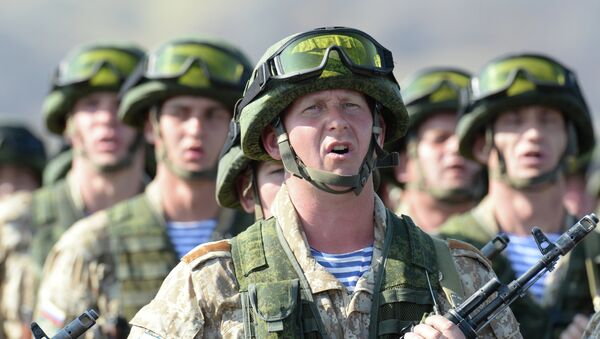On Monday, the Belarusian parliament passed the first reading of the country’s new military doctrine, prohibiting the armed forces from participating in military operations abroad.
The measure has been met with objections by Armenia, the country’s ally in the Russian-led Collective Security Treaty Organization (CSTO).
Armenia’s Deputy Foreign Minister, Shavarsh Kocharyan, argued that Belarus’ new military doctrine could spell trouble for the entire CSTO.
Belarusian President Alexander Lukashenko countered by saying, "Our military doctrine is purely defensive. We will never fight on someone else’s territory because we are committed to a defensive military doctrine."
Lukashenko referenced the conflict in Ukraine as justification to amend the nation’s military doctrine. "There have never been any threats to Ukraine from our land, our territory, and never will be. We pursue the peace-loving policy and will do our best to normalize the situation in Ukraine."
Nonetheless, the other member states of CSTO, including Russia, Armenia, Kazakhstan, Kyrgyzstan and Tajikistan will likely disagree with the Belarusian government’s textual framing of the doctrine, viewing it, instead, as a move to shirk their obligations as members of the military alliance.
Those concerns stand paramount for Armenians facing conflict from Turkey-backed Azerbaijan over the contested Nagorno-Karabakh territory. Armenia has controlled the territory for several decades, argueing that the territory historically has belonged to Armenia, and Nagorno-Karabakh remains primarily inhabited by individuals of Armenian descent.
However, in recent weeks, Azerbaijan has threatened, with the backing of Turkey, the use of its military against Armenia to seize the territory. Turkish President Recep Tayyip Erdogan vowed to support Azerbaijan, and has stated that the territory "will inevitably return to Azerbaijan."




